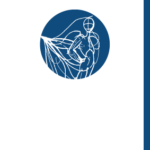Abstract
Pancreatic cancer is the fourth leading cause of cancer death in both the United States and Europe. A fundamental role
in the characterization, early diagnosis, and staging of pancreatic cancer is played by Magnetic Resonance. An innovative and recently implemented sequence, the 4D Free-Breathing sequence, is demonstrating remarkable efficiency
in the characterization of pancreatic lesions, as it allows to obtain images with high temporal resolution on the arterial phase, maintaining high spatial and temporal resolution, with the patient free breathing and with compensation
of respiratory movement artifacts. The aim of this study was to analyze the 4D Free-Breathing sequence technique
and to evaluate its advantages in terms of image quality and diagnostic value in the characterization of pancreatic
lesions. The 4D Free Breathing sequence replaces the acquisition of the classic arterial post-contrast phase obtained
with the 3D-THRIVE sequence: after a first acquisition of the k-space data in the non-contrast phase (lasting 58
seconds), multiple arterial subphases, each one lasting about 5 seconds, will be acquired with a complete coverage
of the post-contrast phase of about 90 seconds. This sequence exploits the k-space sampling technique called “Stack
of Stars”, based on a radial sampling in the XY plane. In detail, along the slice phase-encoding direction (kz), uniform Cartesian-grid sampling is maintained. Within each kz-encoded plane, radial data is collected with consecutive
views (1 per sequence repetition time TR) rotated by a golden-angle of 111.25°, allowing the sampling of a complete
circle, also determining a considerably reduced presence of breath artifacts. The inclusion of the 4D Free-Breathing
sequence in the MRI study protocol of the pancreas, through the rapid and consequential acquisitions of 18 arterial
phases, allows to improve the diagnostic information contained in the arterial phase, with free breathing, also in
non-compliant patients and with correction of breath artifacts

This work is licensed under a Creative Commons Attribution-NonCommercial-NoDerivatives 4.0 International License.
Copyright (c) 2022 Journal of Advanced Health Care





